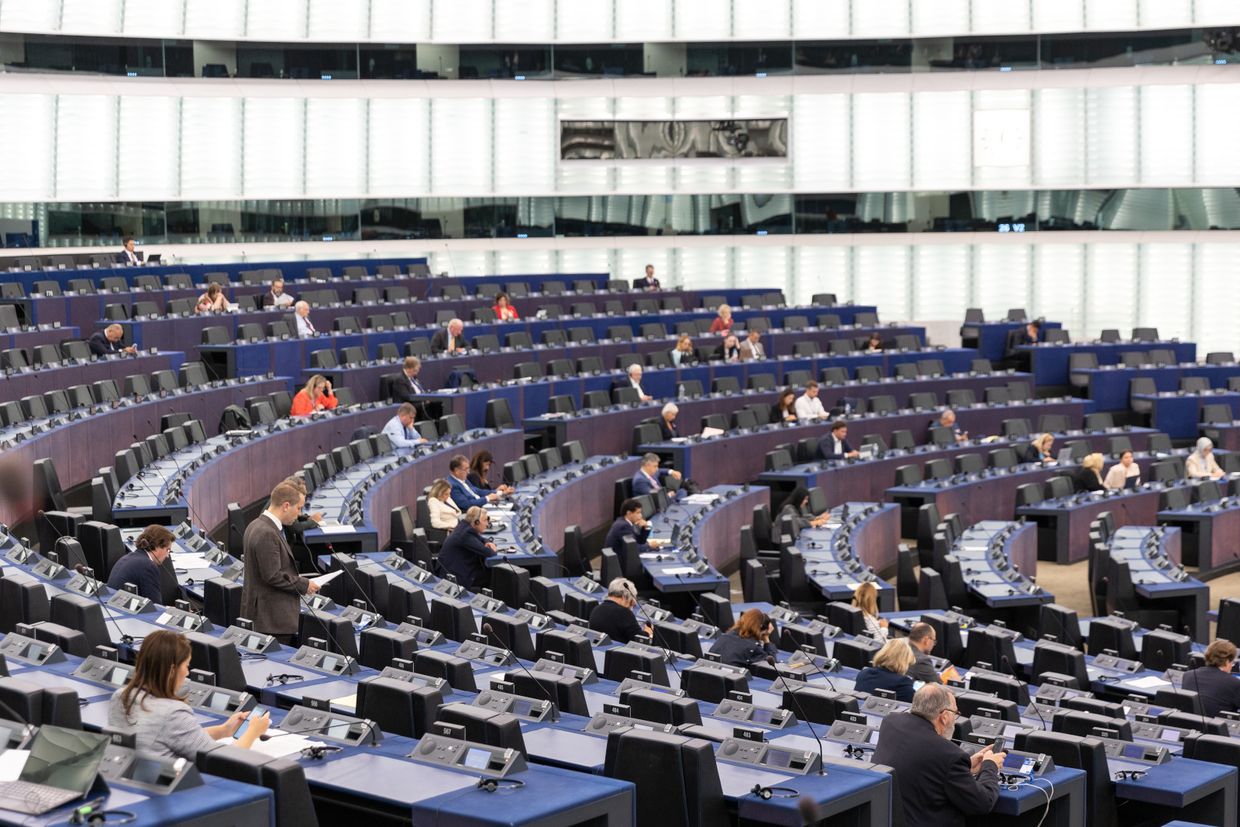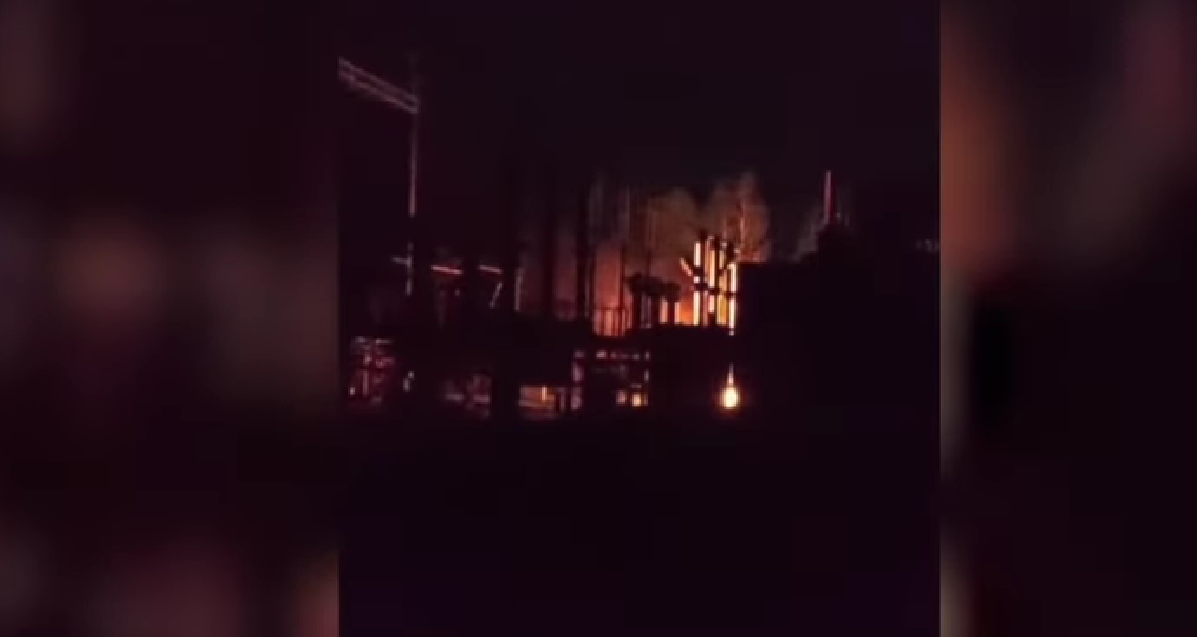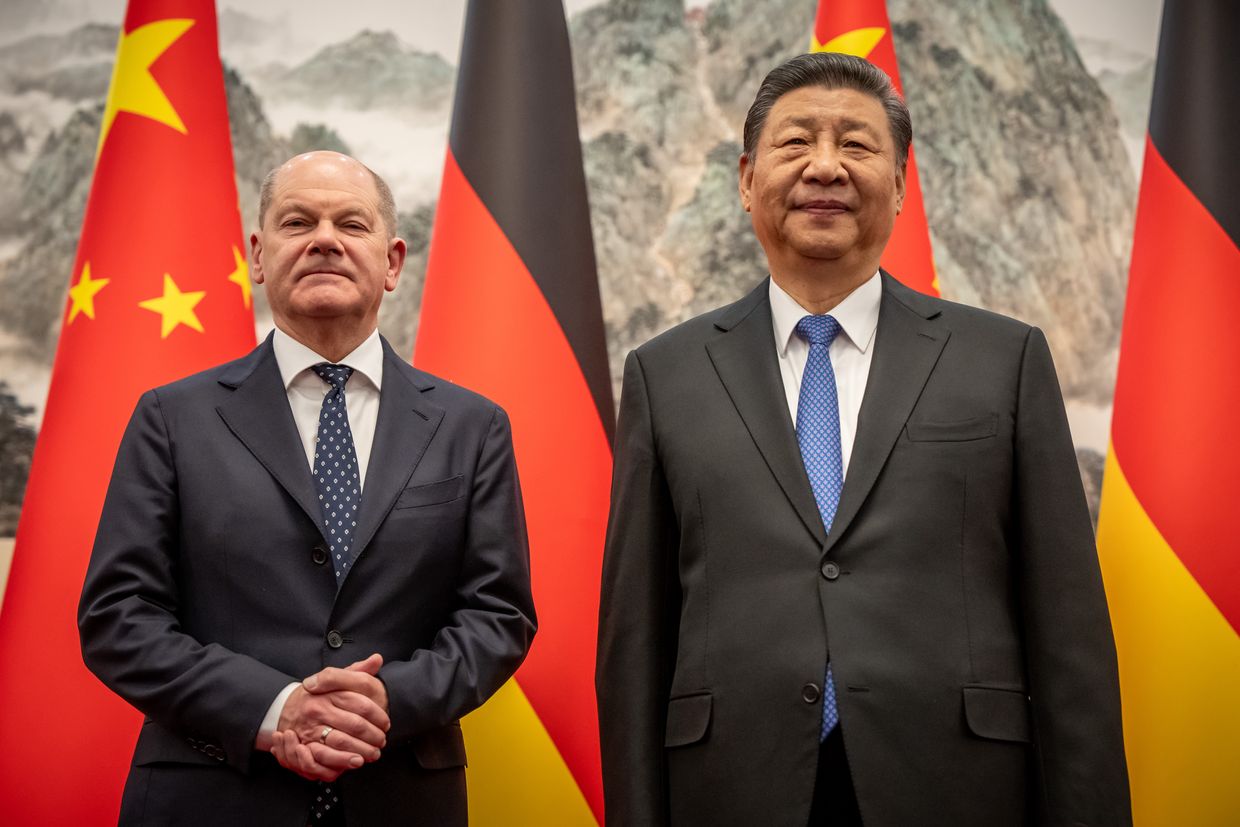Ukraine war latest: Russia destroyed Kyiv Oblast power plant after Ukraine ran out of air defense missiles, Zelensky says

Key developments on April 16:
- Zelensky: Russia destroyed key power plant near Kyiv since Ukraine 'ran out of missiles' for its defense
- Source: Ukraine strikes Russian modernized long-range radar system in Bryansk Oblast
- Bloomberg: Russia does not have capability to launch offensive on Kharkiv
- Zelensky signs mobilization bill
- Scholz says he asked Xi to 'put pressure on Russia' to end invasion
Russian forces destroyed the Trypillia Thermal Power Plant (TPP) in Kyiv Oblast because Ukraine had run out of missiles to defend it during an attack, President Volodymyr Zelensky said in an interview with PBS NewsHour published on April 16.
The Trypillia TPP was completely destroyed in a Russian strike on Ukrainian energy infrastructure on April 11, leading to the 100% loss of Centrenergo's generating capacity.
Russia launched 11 missiles in the direction of the plant, according to Zelensky. Ukraine was able to shoot down the first seven, and four "destroyed Trypillia."
"Why? Because there were zero missiles. We ran out of all the missiles that protected the Trypillia TPP," the president said.
The plant is located less than 30 kilometers south of Kyiv and was the main power supplier to Kyiv, Zhytomyr, and Cherkasy oblasts.
Ukraine's capital city is understood to be the best-protected from Russian mass missile and drone attacks, but stocks of air defense are low across the country as U.S. military aid funding for Ukraine continues to be held up in Congress.
In the meantime, Russia has stepped up targeted attacks on Ukraine's energy infrastructure, overwhelming local air defenses and destroying some of Ukraine's largest coal-fired power stations.
On April 13, amid a renewed diplomatic effort from Kyiv to receive more air defense systems, German Defense Minister Boris Pistorius announced the immediate delivery of an additional Patriot battery to Ukraine.
On the front line, Russia is firing shells at a ratio of around 10:1 to those of Ukraine, Zelensky said in the same PBS interview.
"You have to be much stronger than your enemy, that's what I am talking about. Today, (a ratio of) artillery shells is 1 to 10. Can we stand with this? No, we cannot. (Ratio of) aircraft is 1 to 30. How can we fight?" the president said.
"We do not ask for any special weapons. No one asks for 500 or 300 planes. By the way, Russia uses 300 planes only on Ukraine's territory," Zelensky added.
Source: Ukraine strikes Russian modernized long-range radar system in Bryansk Oblast
Ukraine's Security Service (SBU) attacked a Russian modernized Nebo-U long-range radar system in Russia's Bryansk Oblast, a source at SBU told the Kyiv Independent on April 16.
The Nebo-U system was reportedly capable of monitoring the sky 700 kilometers deep into Ukraine, which helped Russian troops detect Ukrainian weapons and support fighter jets dropping guided aerial bombs. The complex has an estimated price tag of around $100 million.
It was hit with seven kamikaze drones and "is no longer operational," the source told the Kyiv Independent.
"Thanks to the destruction of this radar, the enemy has fewer opportunities to detect air targets along Ukraine's northern border," the source said.
"Russians' radar blindness will help our troops to conduct reconnaissance, launch drones and use army aviation in this area more efficiently."
This is the second Nebo-U system reportedly destroyed by Ukraine. The first one was targeted in Belgorod Oblast in Russia, according to SBU.
Other high-value Russian targets recently struck by Ukraine include the Russian Kasta-2E2 radar system, which was reportedly destroyed near occupied Berdiansk in Zaporizhzhia Oblast.
Bloomberg: Russia does not have capability to launch offensive on Kharkiv
Western officials do not believe that Russia has the capability to launch a new attack on Ukraine's second city of Kharkiv "without a major replenishment of Russian troops," Bloomberg reported on April 16.
Russia has recently intensified attacks against Kharkiv, which had a population of 1.4 million in 2021, with the use of missiles, glide bombs, and drones, destroying energy infrastructure and killing civilians.
Russian forces failed to take Kharkiv in the first weeks of the full-scale invasion, despite the fact the city lies less than 30 kilometers from the Russian border.
In late March, President Volodymyr Zelensky said another major Russian offensive may come at the end of May or in June.
The Financial Times then reported on April 13 that Russia might plan to attack Kharkiv as part of a wider offensive.
Zelensky has said that "Kharkiv is protected" and Ukraine's military intelligence said earlier in April that news of a potential attack on Kharkiv "part of a Russian psychological operation," adding that there were no signs of Moscow preparing new attack formations to carry out a ground offensive.
"While Russia may be short of the manpower," Moscow is making a "coordinated effort to cut off supplies and create conditions that make the city uninhabitable, Bloomberg said, citing officials who spoke on condition of anonymity.
"The damage is extensive enough, and the attacks so unrelenting, that authorities will struggle to restore capacity before the cold sets in next winter," Bloomberg said.
Zelensky signs mobilization bill
Ukraine's bill on mobilization has been signed by President Volodymyr Zelensky, according to the online portal of Ukraine's parliament, the Verkhovna Rada, on April 16.
The bill was passed in its second reading in parliament on April 11 and was signed by the speaker of the parliament on April 15. The bill was submitted for presidential signature earlier on April 16.
The bill on mobilization is a critical component of the Ukrainian political and military leadership's efforts to update the legal framework around conscription in order to ramp up mobilization in 2024.
After an initial, contentious version of the mobilization bill was withdrawn in January, a new, updated version passed the first reading on Feb. 7. Lawmakers have proposed over 4,000 amendments to the bill since then.
Several key provisions of the earlier draft law were eventually passed by the parliament separately, with President Volodymyr Zelensky signing three laws in early April: on the lowering of the conscription age to 25, the introduction of an electronic register for conscripts, and the canceling of the "partially eligible" status.
The final version of the mobilization bill was approved by the parliament's National Security and Defense Committee on April 9.
Of the provisions remaining in the bill, key points include the right of disabled soldiers and those who have returned from captivity to discharge themselves, and the introduction of mandatory medical commission checks for those who previously held the "partially eligible" status.
Other provisions include penalties for those deemed to be dodging the draft, including the potential revoking of consular services and driver's licenses.
The parliament also voted to remove provisions on demobilization, which previously foresaw soldiers having the right to leave the military after 36 months of service, from the bill so that they could be considered separately.
Scholz says he asked Xi to 'put pressure on Russia' to end invasion
German Chancellor Olaf Scholz said on April 16 that he has asked Chinese President Xi Jinping to "put pressure" on Moscow to end its war in Ukraine, as "China's word carries weight in Russia."
Scholz met with Xi in Beijing on April 16 as part of a three-day visit to China. Scholz said before the meeting that he planned to discuss "how we can contribute more to a just peace in Ukraine."
The German chancellor said he asked Xi to "put pressure on Russia to ensure that (Russian President Vladimir) Putin finally abandons his insane campaign, withdraws his troops, and ends this terrible war."
The two leaders also agreed to "coordinate intensively and positively on promoting the hosting of a high-level conference in Switzerland and future international peace conferences," Scholz said, referring to the upcoming global peace summit in Lucerne.
Chinese state-run news agency Xinhua said Xi and Scholz had an "in-depth exchange of views," and Xi proposed four principles to resolve the war.
These principles included refraining "from selfish gains," working to "cool down the situation and not add fuel to the fire," creating "conditions for the restoration of peace," and reducing "the negative impact on the world economy."
Beijing has also maintained close ties with Moscow since February 2022. Ukraine and Europe have diplomatic channels with China open and repeatedly urged Beijing to use its influence over Moscow to help end the war.
Washington expressed concern to its allies about China's support for Russia on April 9, which led the Chinese Foreign Ministry to declare that Beijing and Moscow have the right to continue "normal cooperation."
















